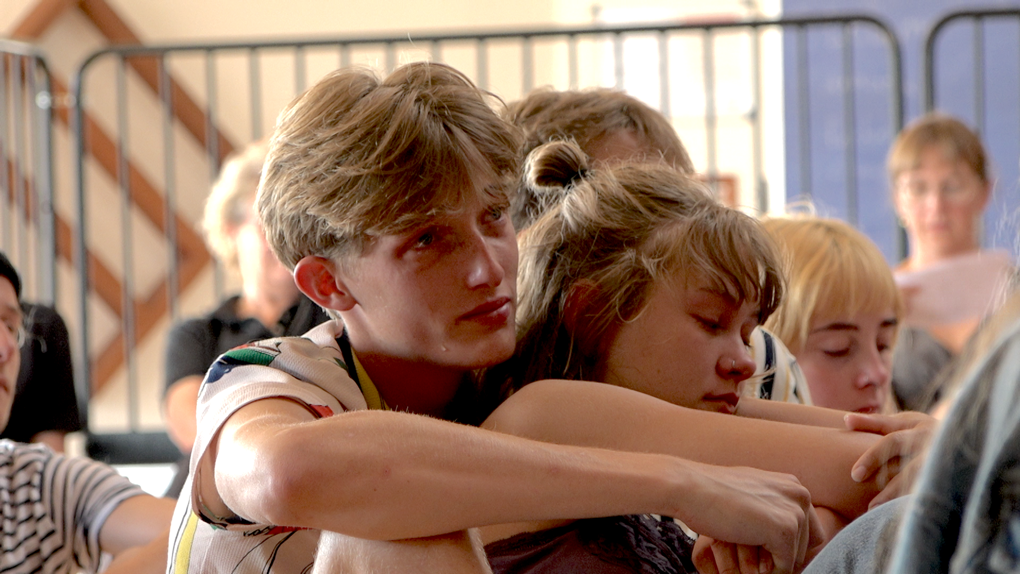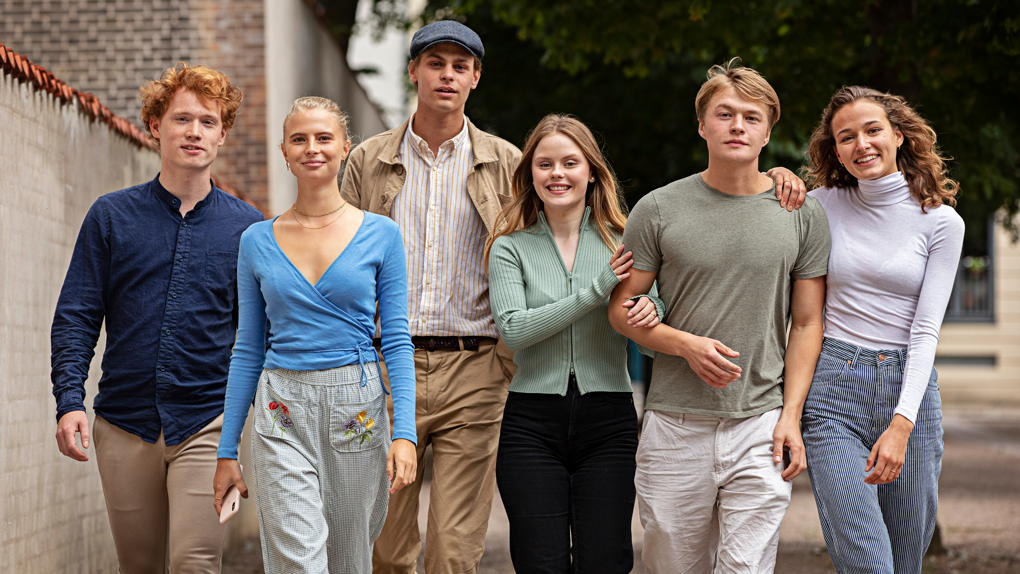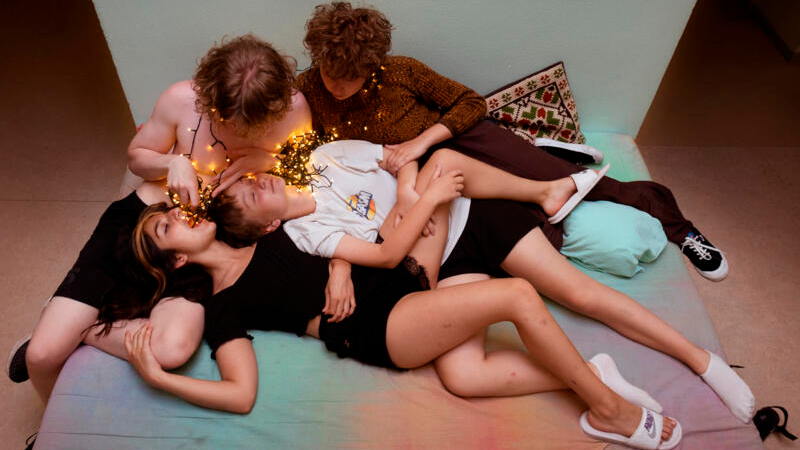
Young audiences are notoriously hard to connect with, and there is massive competition for their attention. They are bombarded with content from morning to night, and have a vast reference catalogue of films and TV shows.
Relevance and authenticity are key when it comes to content for young people. How do you avoid talking down to them, and how do you handle relevance and authenticity when you’re no longer young yourself?
We spoke with documentarian Thora Lorentzen ('Absolute Beginners') and fiction director Tilde Harkamp ('Pretty Young Thing') about making content for teens. Both researched their audience thoroughly – independently and through the Danish Film Institute’s AudienceFocus funding scheme.
Young people aren’t all the same
Premiering her documentary series 'Absolute Beginners' last June, Lorentzen was praised for capturing an authentic atmosphere and recognisable emotions among teens.
Winner of the Prix Europa for Best Docu Series, 'Absolute Beginners' follows a group of students at an 'efterskole', a residential school unique to Denmark for kids aged 14-18.

We follow the students over the course of an eventful school year of intense crushes, new friendships and a painful Covid-19 shutdown.
Staying at the school throughout the school year brought Lorentzen up close and personal with the students. The intense bonding constituted her first study of her target audience.
Her main piece of advice to those who want to create content for young people is, "Talk with them, a lot."
"I believe you should be honestly interested in young people and not think you know who they are in advance. There are lot of preconceived notions about what young people think. For instance, I don’t know where people get the idea that kids love any content as long as it’s on a phone, and I’m not sure that’s actually the case. At least that wasn’t my experience," Lorentzen says.
She found that screens figured very little when her protagonists were able to hang out at the school. That’s why there are hardly any phones in the series. Also, unlike other teen shows, she doesn’t use texting as a device.
Another preconception she encountered concerned the series’ use of music. "A critic wrote that I had slathered the film in my own fancy taste in music, when in fact all the music is from my footage. There’s a notion that young people’s music is only new and trendy, that young people don’t listen to Miles Davis or Pink Floyd. They do, actually."
In Lorentzen’s view, this exemplifies the common misconception in the industry that all teens are the same.
"I think it’s a mistake to treat all kids as a uniform mass. They are as different as any audience of grownups, which is why it would be cool to heighten the focus on creating teen shows with different styles of storytelling. I tried to treat the kids as real people and be faithful to the universe I encountered," she says.
Research shook up the filmmakers’ preconceptions
Director Tilde Harkamp also had to reconsider her notions about teen living while working on her feature 'Pretty Young Thing', to premiere in September 2022.
Written by Line Mørkeby, 'Pretty Young Thing' is about a first-year high-school student crushing on a third-year boy, who is helping to organise a so-called freshman dinner, a tradition at Danish high schools of third-year boys asking first-year girls to boozy dinner parties.
The tradition has been criticised for pressuring, too.

"When we first started working on the film, I thought the girls would be able to see that these wild freshman dinners weren’t cool," she says. "But after talking with a bunch of girls, we actually had to change our opinion."
All too aware that she "is not 25", and has to be careful not to impose a parental point of view on the film, she and producer Marcella Dichmann of SF Studios early on started researching high-school party culture by conducting focus groups with girls who had recently graduated from high school.
That was a real eye-opener, Harkamp says.
"We have met very few girls who have had a bad experience. Most of them see the dinners as fun and games that they attended on their own volition. They consider themselves equal to boys, because the boys are just as much at risk, as they see it. So we had to put the ball back in play and reconsider a lot of our thinking, since moralising is no use. Our goal is to raise a discussion with the kids about setting boundaries. But a discussion at their eye level.”
Research confirmed they were at eye level
They succeeded, according to a subsequent audience study based on the final script. The study was conducted through the Danish Film Institute's funding scheme AudienceFocus, .
"With AudienceFocus, we wanted to make sure that the script hit the mark. Fortunately, the study showed that we had gone in the right direction, and that the teen audience felt we had made a film they could see themselves in," Harkamp says.
Listening to young people does not mean you have to pander to them. Harkamp wants to challenge how young women think about party culture and sexualization.
"The film got going because I was curious about general trends among young women. I’m from a feminist family and was raised to believe that intellect, not looks, is what counts. I have been observing today’s young women and think there’s a major fixation on the body, and that 15-year-old girls today are more sexualised than when I was 15. But at the same time, they are also very feminist.
"I was curious about how that could be. I still am, actually. I think you could make the point that girls have the long end of the stick, and that they may actually be the ones who are in control. I hope they will have that discussion internally, and I have tried to make a film that can be interpreted in several different ways. A number of respondents among our research audience told us they liked that the film doesn’t provide an answer to the question of what’s right and wrong."
Honest curiosity pays off
Both Harkamp and Lorentzen urge filmmakers to start from their own interests when aiming to connect with a teen audience.
"If you are curious about a theme yourself, you can quickly find a way into it in partnership with young people. In my experience, they are extremely open and generous with themselves. Working with young people has been a gift, both in the research and working with the cast, because they approach the task with zeal and commitment," Harkamp says.
For Lorentzen, it paid off to focus on her interest in the students’ love lives. The young respondents in the audience study she conducted while editing the film couldn’t get enough of love and emotion. To her delight, that was also the case with the boys.
The study made her ramp up the grand emotions in the series even more, including in the cinematic language, and highlight the students’ personal stories in the film’s promotion. Moreover, she used her own approach to the material.
"I’m telling the story from a personal point of view. I’m very much in touch with the emotions I had when I was young, and it moves me to see the same emotions in these kids. There’s a singular energy, sweetness and naivety about teens, and I don’t at all feel like I’m done working with stories for them. They are an exciting target group because they are works in process, they are malleable and get very enthusiastic when they see something new."

